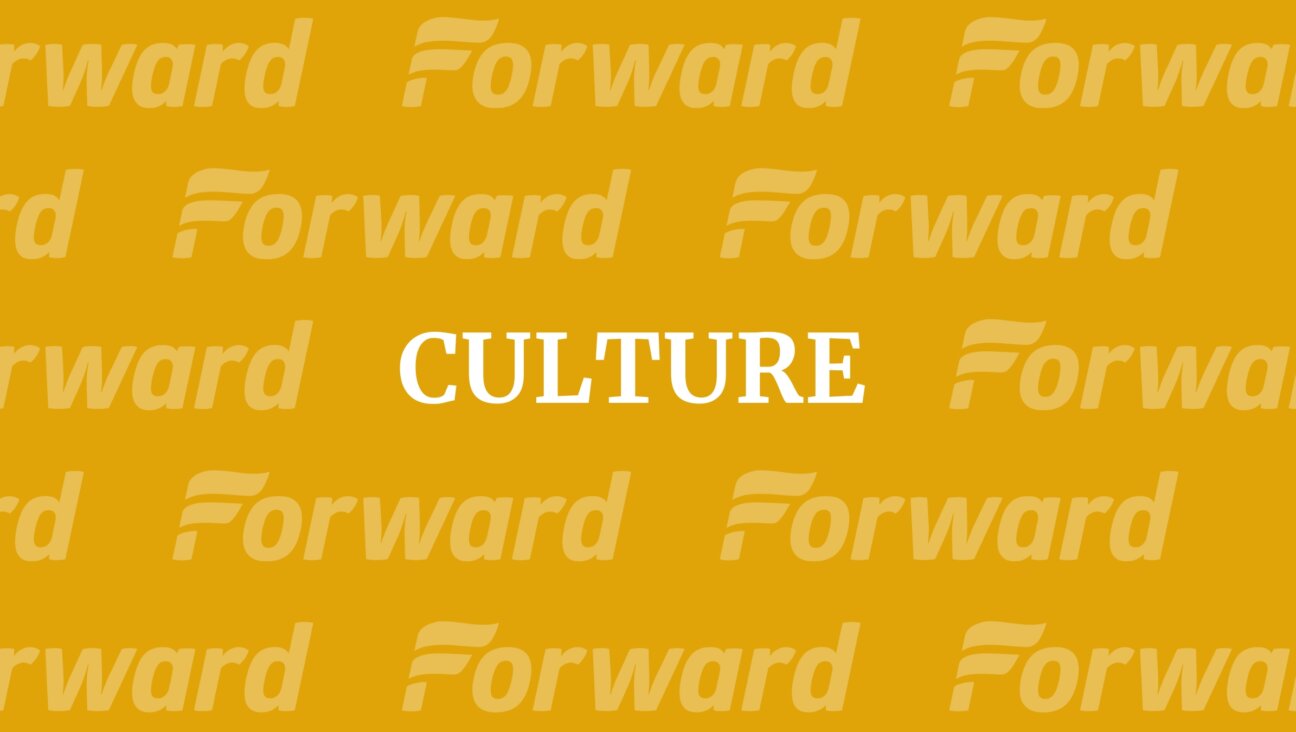Schuyler Velasco
By Schuyler Velasco
-

The Schmooze Friday Film: Make a Choice, Any Choice
Image courtesy of Dragoman Films “Je T’aime, I Love You Terminal,” screening this month at the Detroit Jewish Film Festival, is a cautionary tale about the dangers of indecision — that when we’re faced with two options, choosing neither is often worse than choosing the wrong one. To a lesser extent, the film is about…
-

The Schmooze Friday Film: Not Quite ‘The Karate Kid’
There’s something familiar about “Kaddish for a Friend,” the coming of age/unlikely friendship tale screening at this year’s Atlanta Jewish Film Festival. Indeed, Berlin-born director Leo Kashin’s full-length debut reeks of “Karate Kid,” Clint Eastwood’s “Gran Torino,” and any number of movies from the “young fish out of water befriends a crusty old guy from…
-

The Schmooze Friday Film: A Radical Experiment in Dating
“2 night” is a rich, complex film based on two simple premises. The first is the sheer impossibility of finding a parking space in Tel Aviv at 2 a.m. on a weekend. The second is an experiment in dating without pretense: What if, when two people embarked on a relationship, they showed their true colors…
-

Culture Have No Fear, It’s Still ‘Porgy and Bess’
As the curtain fell after the fourth round of applause for the American Repertory Theater’s highly anticipated and highly controversial revival of “The Gershwins’ Porgy and Bess,” which opened on August 31 in Cambridge, Mass., one couldn’t help but give thanks for George Gershwin and Audra McDonald, who played the female title role. Owing to…
-

The Schmooze Friday Film: Eichmann in Argentina
Can a murderer be someone with no literal blood on his hands? Someone who never gave a direct order to kill? In the case of Adolf Eichmann, the Nazi leader who organized the transport of millions of Jews to death camps during the Holocaust, the answer was a resounding, unanimous “yes.” After years in hiding,…
-

The Schmooze Sondheim’s ‘Porgy’ Complaints Come to the Fringe
There is exactly one perceptive sentence of dialogue in “Chasing Heaven,” now playing through August 26 at CSV Flamboyan as part of the 15th Annual New York International Fringe Festival. It comes rather late in the proceedings, when the two main characters, in grudging collaboration on a rewrite of a very familiar-sounding piece of iconic…
-

The Schmooze Friday Film: When Perpetual Youth Is No Picnic
Underneath its colorful shell of swashbuckling pirate adventures, boyish hi-jinx, and clock-eating crocodiles, Peter Pan’s story is terribly sad. Sure, he gets to play and have fun forever, but by refusing to grow up he loses all of his friends and the girl he loves; he is forced to watch through the window as the…
-

The Schmooze Friday Film: ‘Mary Lou’ Is More Than the Israeli ‘Glee’
“Courage is sometimes no more than an outburst of great despair.” Early on, when our hero and narrator delivers the above line, one begins to suspect that “Mary Lou,” the infectious, surprisingly rich new musical drama from Israeli director Eytan Fox, has more to offer than sugary pop escapism, though it is generous on that…
Most Popular
- 1

News No Jews allowed: White supremacists are building a segregated community in Arkansas, but is it legal?
- 2

Opinion Zohran Mamdani’s victory proves it: The ‘gotcha’ mode of fighting antisemitism has to go
- 3

News Zohran Mamdani has represented Astoria’s Jews for 4 years. What do they think of him?
- 4

News What a Mayor Mamdani would mean for New York Jews
In Case You Missed It
-

Books This graphic history of Jerusalem is a big hit. But its Jews have hooked noses
-

Culture Is now really the best time for a cutesy Jewish summer camp movie?
-

Fast Forward Australia cancels Kanye West’s visa over controversial ‘Heil Hitler’ song: ‘We don’t need that in Australia’
-

Yiddish טשיקאַוועסן: האָספּיץ־וואָלונטירס פֿונדאַציע שענקט שפּײַזקאַרטלעך צו אָרעמע פּאַציענטןTidbits: Hospice volunteer’s foundation donates grocery gift cards to poor patients
במשך פֿון זיבן יאָר האָט דזשעף לויִס אַוועקגעגעבן צען טויזנט שפּײַזקאַרטלעך.
-
Shop the Forward Store
100% of profits support our journalism







